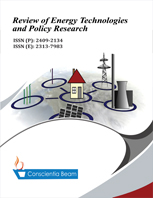Energy Consumption and Thermal Comfort Analysis of Public Housing in Sao Paulo, Brazil
DOI:
https://doi.org/10.18488/journal.77/2015.2.1/77.1.1.15Abstract
This research examines energy consumption of public housing in Sao Paulo, Brazil and how changes in the current design practice affect building’s energy consumption and comfort level. The hypothesis is that energy-efficient design concepts applied to the public housing design in Sao Paulo could significantly reduce energy consumption in buildings. Computer simulation is used to evaluate the current buildings’ energy performance and to simulate the performance of new energy-saving design strategies. The findings show that energy consumption can be reduced by as much as 54% by implementing the new design strategies. This study highlights the many opportunities for architects to change the public housing scenario in Sao Paulo. It showed that changes carefully applied to the current design process can significantly enhance building’s energy performance and comfort level inside the envelope.

